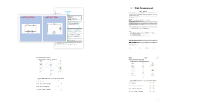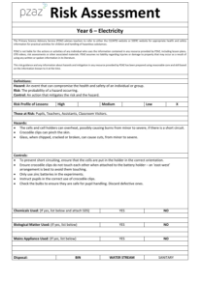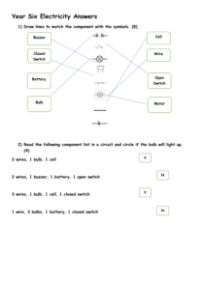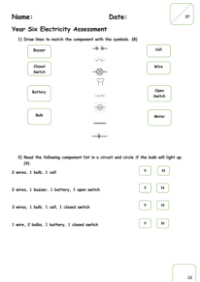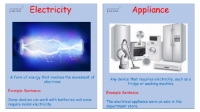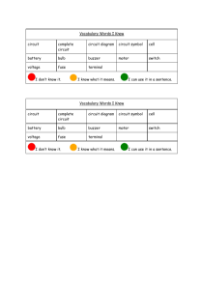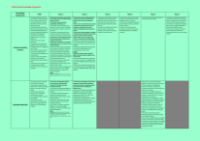Electricity - Knowledge Organisers
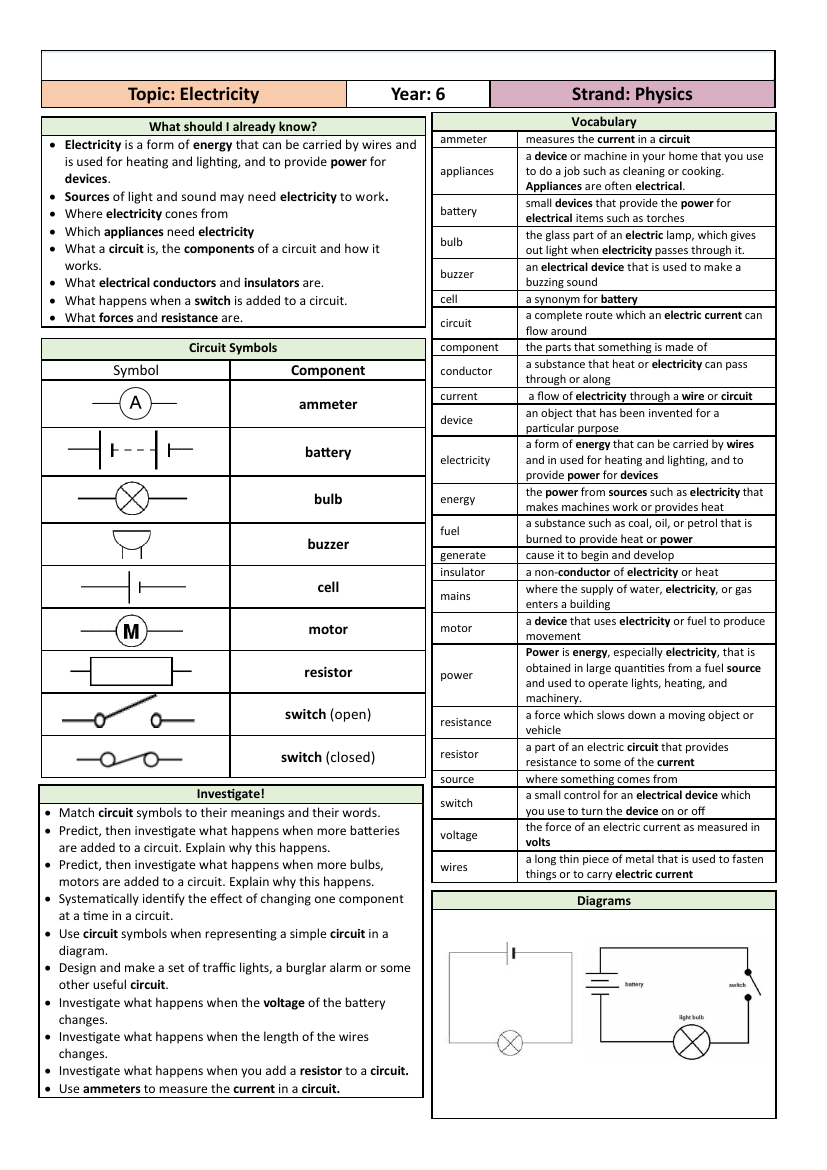
Science Resource Description
As part of the Year 6 Physics curriculum, students delve into the fascinating world of electricity. Prior to beginning this topic, they should already possess foundational knowledge about electricity being a versatile form of energy transmitted through wires, which powers our lights, heating systems, and various devices. They should understand the sources of electricity, identify which appliances require it, and be familiar with the concept of an electric circuit, including its components and functionality. Additionally, students should be able to differentiate between electrical conductors and insulators, comprehend the role of switches in circuits, and grasp the principles of forces and resistance.
The vocabulary section is rich with terms integral to the study of electricity, such as 'ammeter' which measures current, and 'appliances', referring to household devices powered electrically. Understanding the function of a 'battery', the light-emitting 'bulb', and the sound-producing 'buzzer' is crucial. Students learn about 'circuits', the pathways for electric current, and the various 'components' that make up these circuits, like 'conductors' which allow electricity to pass, and 'insulators' which do not. They explore how 'current' flows, the importance of 'energy' and 'power' in operating machines, and the effects of 'resistance'. The investigative section encourages practical exploration, such as matching circuit symbols to their correct names, experimenting with the effects of adding batteries or bulbs to a circuit, and measuring current with an ammeter. Students are also challenged to design and construct practical circuits, like traffic lights or alarms, and to understand the impact of changes in voltage, wire length, and the addition of resistors on a circuit's performance.

